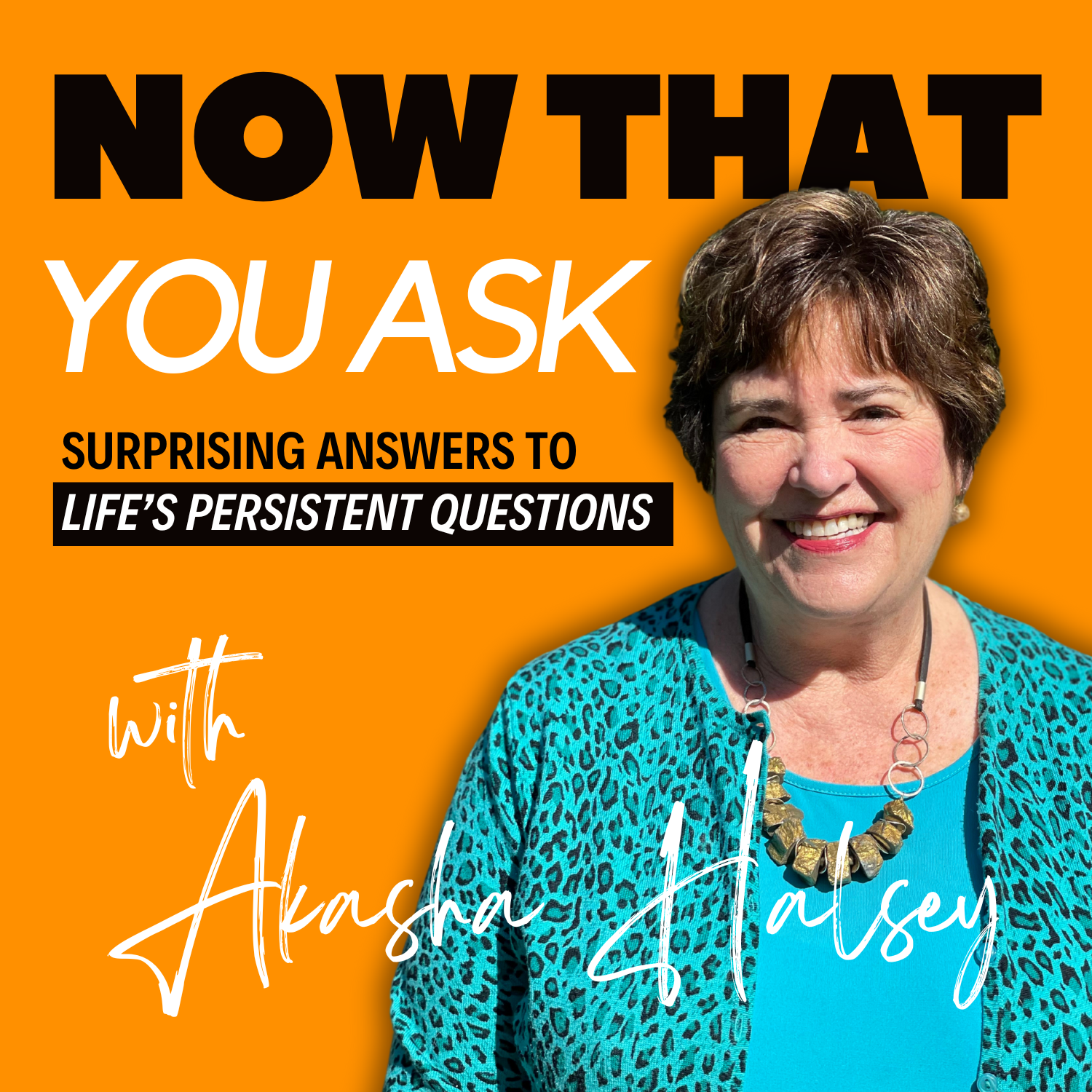Words fascinate and inspire me. I would even consider them friends. This episode explores my 60+ year long relationship with words as well as the questions and answers in which I have found them.
Now That You Ask is a podcast that looks at topics that range from death to desire, and from wondrous to downright whacky. Join host, Akasha Halsey as she takes listeners on a journey through her writing and experience with life’s most persistent questions.
Thank you for listening!
Listen to more episodes like this and subscribe to updates athttps://nowthatyouaskpodcast.com/
